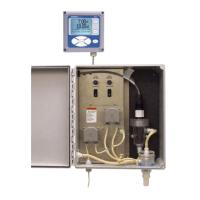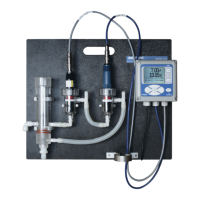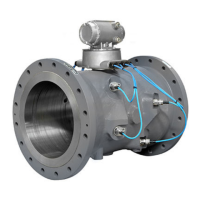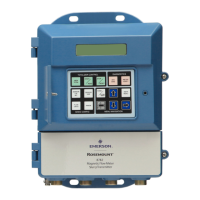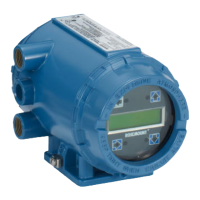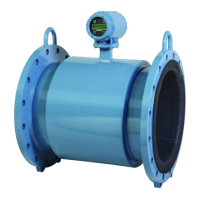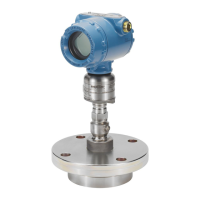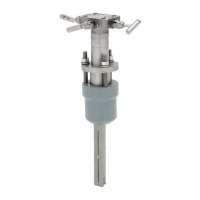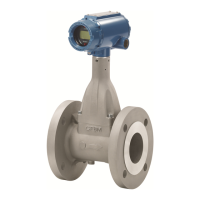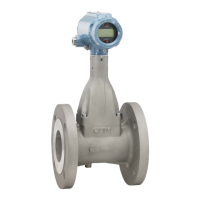Rosemount Model 1195/ProPlate/Mass ProPlate
5-14
1. Connect a reference meter to the flowmeter. To do so, either
connect the meter to the test terminals on the flowmeter terminal
block, or shunt the power to the flowmeter through the meter at
some point in the loop.
2. From the HOME screen, Select 1 Device Setup, 2 Diagnostics and
Service, 2 Loop Test, to prepare to perform a loop test.
3. Select “OK” after you set the control loop to manual (see
<Bold>Setting the Loop to Manual on page -5).
4. The communicator displays the loop test menu.
5. Select a discrete milliamp level for the flowmeter to output. At the
“Choose analog output” prompt, select 1 4mA, 2 20mA, or select
3 other to manually input a value.
6. If you are performing a loop test to verify the output of a
flowmeter, enter a value between 4 and 20 mA. If you are
performing a loop test to verify the flowmeter alarm levels, enter
the milliamp value at which the flowmeter should enter an alarm
state (see Tables 5-1 and 5-2 on page -2).
7. Check the electrical current meter installed in the test loop to
verify that it reads the value you commanded the flowmeter to
output. If the readings match, the flowmeter and the loop are
configured and functioning properly. If the readings do not match,
there may be a fault in the wiring, the flowmeter may require an
output trim, or the electrical current meter may be
malfunctioning.
After completing the test procedure, the display returns to the loop test
screen and allows you to choose another output value or to exit loop
testing.
Calibration Calibrating a smart flowmeter is different from calibrating an analog
flowmeter. The one-step calibration process of an analog flowmeter is
done in three steps with a smart flowmeter:
• Rerange – sets the 4 and 20 mA points at the desired pressures;
• Sensor Trim – Adjusts the position of the factory characterization
curve to optimize the flowmeter performance over a specified
pressure range or to adjust for mounting effects;
• Analog Output Trim – Adjusts the analog output to match the
plant standard or the control loop.
To understand the calibration of a ProPlate smart flowmeter, it is
necessary to understand that smart flowmeters operate differently
than analog flowmeters. A smart flowmeter uses a microprocessor that
contains information about the sensor’s specific characteristics in
response to pressure and temperature inputs; each sensor varies
slightly. A smart flowmeter compensates for these sensor variations.
The process of generating the sensor performance profile is called
factory characterization, and it enables a smart flowmeter to maintain
higher performance specifications than analog flowmeters.
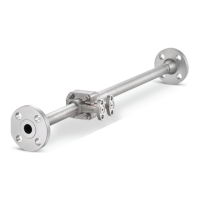
